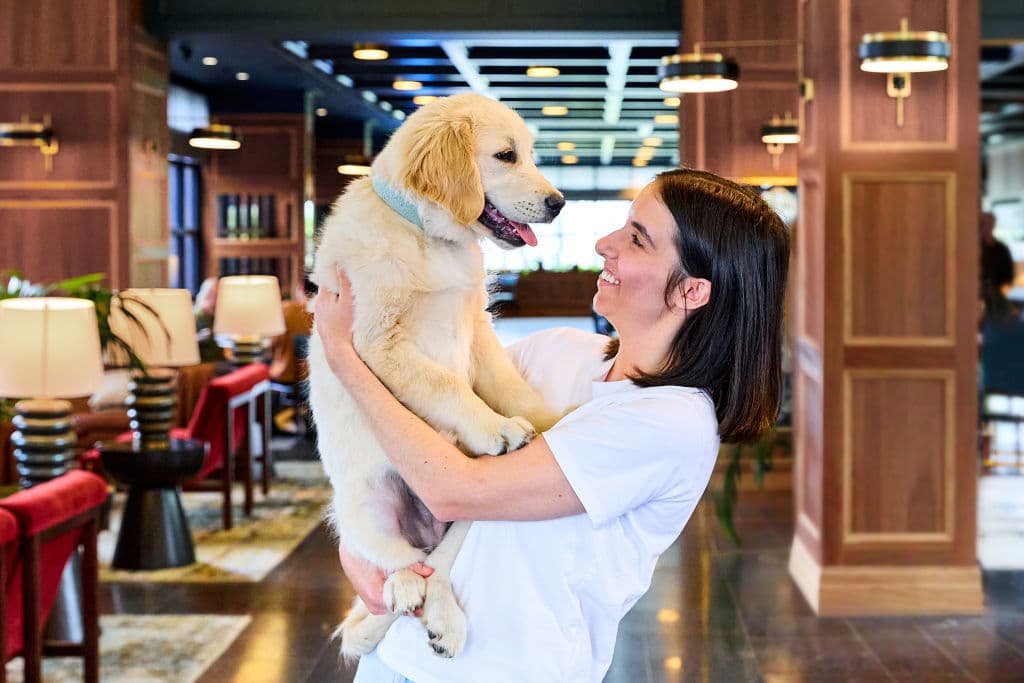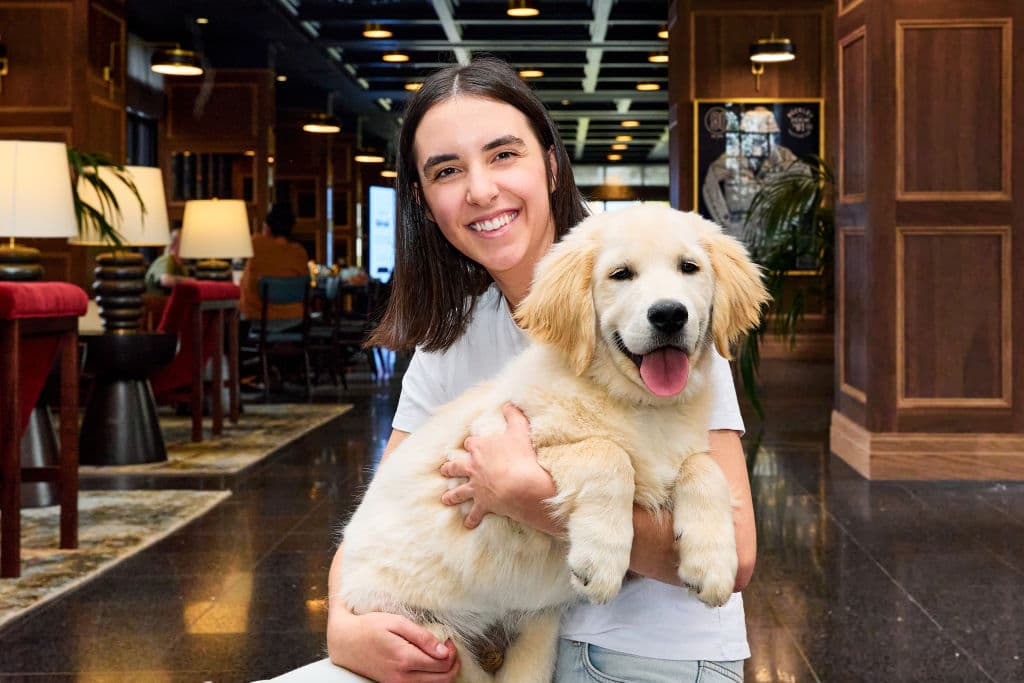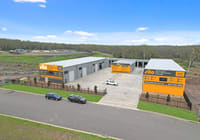
Pets in the office: More companies are opening doors to animals
Workers anxious about leaving their beloved pooches at home are finding new workplaces happy to embrace them and their four-legged friends.
While some employers have long allowed dogs at work, the rule book is being rewritten post-pandemic due to skyrocketing dog ownership and the new normal of time spent in the office and working from home.
According to the Australian Bureau of Statistics, 49 per cent of all Australian households own at least one dog, up 9 per cent in five years. That adds up to 7.4 million dogs.
With that has come a growing “humanisation” of pets. They’re no longer out in the kennel but companions that provide mental health support and act as ice-breakers in the office.
Michelle Cavicchiolo, design associate at architecture firm ClarkeHopkinsClarke, says there has been a surge in dogs in workplaces, co-working hubs and businesses post-COVID.
“Wellness has become a priority to get people back into the office, and for some people, taking their dog to work is part of that,” she says.
Cavicchiolo says in most cases, existing commercial premises, whether an office block or a cafe, have hard-wearing, durable surfaces able to accommodate dogs.
She says residential developments are leading the way, with tubs in shared laundries for dog washing, hydration stations, storage for dog beds and hooks to hang leashes. She expects these to increasingly cross over to commercial premises, with hooks under desks and storage for dog beds.
Cavicchiolo says hotels and Airbnbs are also tapping into the dog economy.
Nationally, QT Hotels and Langham are among hotels offering pet-appointed rooms which include orthopaedic beds. Rules vary, and some have a pet levy to ensure deep cleaning so any subsequent guest with an allergy will not be affected. In some cases, dogs aren’t allowed in rooms without a human and must be leashed in public areas.

At this stage, Cavicchiolo says the existing infrastructure can be adapted, but the success or otherwise of dogs in the workplace will be determined by policies and the goodwill of staff.
She says there may need to be negotiated spaces for people with dogs, accommodating those happy to be around them and those who might have allergies or phobias.
Designing the layout around this could see a pet zone close to the door so they can go in and out for toileting and walks. Cavicchiolo says acoustics could come into play if barking is an issue.
She points to Melbourne Airport which has dedicated animal relief locations for assistance and guide dogs in two terminals.
Sydney-based RBA Group has also fitted pet fountains in the animal relief area of Sydney Airport so dogs can relieve themselves and hydrate.
With Virgin launching dog-friendly flights, these may be in demand as family members, including the dog, do their pre-flight ablutions.
Tech giant Google allows employees to bring their pets to work providing they abide by a formal pet policy, with pet owners known as Dooglers in Google-speak.
To Melbourne’s north, Essendon Fields, a business park and big-box retail outlet operating alongside a corporate, general and emergency services jet hub, also has dog-friendly zones.
Tenant Active Utilities invites employees to take their dogs to work every Thursday, and another tenant, Airport Toyota, boasts a wellbeing ambassador called Kluger, a groodle.

Geelong-based Cotton On has allowed its 1200 staff to bring dogs to the head office since early 2016, and has up to 100 dogs on-site on any given day.
“We love it when our team brings their dogs to work – it’s such a great way to spark connections, bring people together and build a sense of community,” says Cotton On head of communications and workplace experience Rachel Jones.
“Having dogs around is just one of the perks; we also run a state-of-the-art wellness centre, Cotton On Childcare and the world’s best workplace cafe.”
Colliers Melbourne office leasing manager Annabelle Gandolfo says dog-friendly offices were initially limited to co-working spaces but are becoming more popular.
They are less prevalent in city properties owned by institutional landlords. This could partly be because many city workers use public transport to get into the city, so they would be reluctant to take a dog on a train or tram.
“It would not be unusual for me to walk into an office and see a dog,” Gandolfo says.
She adds that many private landlords leasing to companies with a dog-friendly policy are concerned about how dogs might affect other tenants.
For businesses, managing dogs is a human resources issue that they need to work through to ensure other employees are happy and the dog is well-trained, she says.
Some dog-friendly offices have concrete rather than carpet flooring, which may be easier to keep clean, Gandolfo says. These tend to be smaller private companies in less corporate settings.










